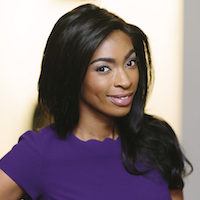Imagine that you’re looking to hire a financial coach. And let’s say, through some amazing bit of luck, you get a chance to work with the top investment advisor in your area, the closest thing your city has to Warren Buffett.
The price is steep, but when the only other choice is a random dude with “certified financial planner” on his business card, you’re willing to pay extra. Why? Because the top guy has been around for years, he’s highly respected by his peers, and most important, he creates tangible results for his clients.
Now, think about the client who’s looking for a personal trainer, or a new gym to work out in. What reason does she have to see you as the obvious, number-one choice, regardless of cost, distance, or any other obstacle? What elevates you above dozens or hundreds or maybe thousands of competitors in your niche?
If the answer isn’t obvious, it’s time to raise your profile—locally, nationally, or even globally.
The following four strategies increase your status as an expert. Master three of them, and you’re well on your way to becoming the obvious choice for your ideal clients.
1. Stack up earned media credentials
There are three types of media:
Owned media is your own platform—Facebook, Instagram, Twitter, YouTube—where you control the content. There’s almost unlimited potential for building an audience, but limited prestige. Nobody ever followed “As seen on …” with “Instagram.” (Not even Jen Selter, who has more than 12 million followers.)
Paid media is, obviously, the exposure you pay for. It includes everything from ads to infomercials. While it can be effective, most of us do everything we can to ignore it, from flipping past the ad pages in a magazine, to clicking off or scrolling past online ads, to using a DVR for our favorite shows so we can fast forward through commercials.
Earned media is the biggest prize for most of us. It means someone else decided we’re important enough to feature in an article or on TV.
That’s why the websites of well-known fitness pros have an array of “As Seen In …” logos to highlight their media appearances and editorial coverage.
For example, if you go to Natalie Jill’s website, you’ll see a banner that includes magazines, TV networks, and websites. Same with Eric Cressey, John Rusin, and countless others.
Earned media matters because it means you didn’t choose to put yourself there. The editors and producers who make those decisions chose to make you the content, and there’s no benefit to choosing some nobody off the street. Once you become media-endorsed, you are, by definition, somebody.
2. Become an award-winning brand
For some things, consumers will automatically choose the cheapest, easiest, or fastest. But when it comes to their personal health and fitness, they want the best.
How do they know who that is? How do they tell the difference between #10 and #1? That’s where awards come in.
When I worked for a company that specialized in women-only bootcamps, we set out to collect as many awards as we could. It was a key marketing strategy for us, and we won them year after year in both fitness and business categories, including awards for best gym and best small or medium employer. We also got listed among hot new growth companies and top companies run by women.
The impact was huge. In just a few years we went from 30 locations across Canada to more than 100. Our annual revenues increased tenfold to $4 million. We regularly sold out sessions weeks in advance, while other bootcamps targeting our female audience struggled to reach 50 percent of their capacity.
Once we were the undisputed best operation in our category, we didn’t need to make extraordinary efforts to attract clients to us. The recognition we received from credible third parties spoke for itself.
Applying for these awards is relatively inexpensive, if it costs anything at all beyond your time. Sometimes you can even ask the host to create a new category—one where you’d have an obvious advantage.
READ ALSO: When They Zig, You Zag
3. Speak on stages
When you attend an industry event, think of how you perceive the person sitting next to you. She could be a perfectly nice person, perhaps somebody you’d want to work with down the road. But because she’s in the audience, next to you, you perceive her as a peer, regardless of her actual status in the industry.
Now think of how you perceive the person onstage. Literally and figuratively, you’re looking up to her. You see the presenter as an expert. If she weren’t, you wouldn’t invest your time and money to hear her speak.
You don’t need any type of certification to become a presenter. The ability to motivate, inspire, and transform is enough to qualify you for many stages. Craft your signature talk, give it a provocative title, and then practice it every chance you get.
Start locally (in your own gym, if that’s an option), work your way up to regional events, and then pitch national organizations.
Stay sharp by taking advantage of any opportunity to go on a podcast or present at an online summit. Review your performance when the interview or presentation is released by the host, take note of what you can improve, and do it better next time.
READ ALSO: I Hate Hacks
4. Create credible content
Content is the linchpin for everything I’ve talked about here—earned media, local awards, chances to present. The first thing gatekeepers like editors, producers, and event organizers will want to know about you is whether you’re a credible expert in your category.
That’s why I always say this to my private and mastermind clients: Create the content you want to be known for.
Start with posts and videos on your own media, and then branch out. You can post your best articles at Medium, publish guest posts on friends’ sites, and then shoot for platforms like the PTDC, where your articles will be seen by your peers and are easily searchable.
Already past that point? You can consider writing a book. There really aren’t any barriers to entry, since anyone can self-publish on Amazon’s CreateSpace platform. The question you have to ask yourself is whether it’s worth the time and effort it takes to write, edit, and promote a book, especially balanced against all the other things you could do with those limited resources.
Writing a book for a publisher is a different calculation. For one thing, it means your book will be professionally designed and edited, at no cost to you. But even more important, it means you’ve been chosen by a series of gatekeepers—an agent, an editor, and the people whose job it is to assess your book’s potential.
Remember what I said earlier about how there’s no advantage for editors and producers to feature “some nobody off the street”? That’s true 100 times over for a commercial publishing company. Their jobs are on the line every time they say yes to a book, especially when it’s by a first-time author.
They aren’t just looking at your manuscript. They’re looking at you. They’re looking at the size of your audience, the quality and volume of your content, your reputation in the industry, how you present yourself on social media. That’s in addition to everything else I’ve mentioned already: the media you’ve earned, the awards you’ve won, and the stages you’ve appeared on.
Before they give you what you want—status and prestige that sets you apart from your peers—they need to know if you have what they want.
READ ALSO: The Ancient Secret to Writing Powerful Sales Copy
Final thoughts
It’s safe to assume your clients already consider you an expert.
But it takes more than knowledge, skill, and experience to become an expert in the eyes of people who’ve never met you, much less worked with you. For that, you need to be resourceful and persistent. You have to differentiate yourself in ways others haven’t yet considered.
Moreover, you have to continue to be resourceful and persistent. As soon as your competitors see you featured on the local news, or read about the awards you’ve won, or see you onstage at a fitness event, you can bet they’ll start hounding the people responsible for each of those things.
The advantage of being a recognized expert is that it gets easier each time. Each appearance or award or opportunity.











